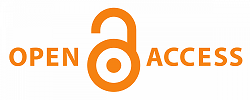CHALLENGES AND COPING MECHANISMS OF PRE-SERVICE TEACHERS MAJOR IN FILIPINO IN THEIR FIELD STUDY PROGRAM
Abstrak
The qualitative study, which used the method of descriptive qualitative research, aimed to explore the lived experiences of Filipino major students at Bataan Peninsula State University's Balanga Campus in blended learning for the school year 2022-2023. This study has six participants, from second- to fourth-year level students from the College of Education majoring in Filipino. The participants were selected using a purposive sampling method since the study aimed to acquire data that describes the lived experiences of the research participants. The data were gathered through semi-structured interview questions that allowed the researchers to further ask open-ended questions that could help them understand the insights and perspectives of the participants. The study was limited only to the second- to fourth-year students present in the college of education major in the Filipino academic year 2022-2023.
The themes that come out after gathering the data are the following: the time management, learned essential and applicable knowledge, technical and technological, and utilized time management as a strategy. In the acquired knowledge that the participant acquired during blended learning, here are the emerging themes: time management, independent learners, and learning to collaborate. Given the summary of the findings from the transcription of the interview, the recommendations in that form are the following: (1) Students' goals, learning styles, expectations, and incentives should all be considered. It will have a favorable impact on their experience and drive to continue participating in blended learning. (2) Increase student awareness of the advantages, expectations, and challenges of blended learning settings.
Referensi
Bolanio, I.C., et al., (2018). Level of Stress and Coping Mechanisms of Teacher Education Interns of thr University of Bohol. Professional Studies Journal, 2362-9142. https://pdfs.semanticscholar.
Büşra Kartal & Uğur Başarmak (2022) Preservice computer science teachers’ beliefs, motivational orientations, and teachingpractices, EducationalStudies, DOI: 10.1080/03055698.2022.2069461
[ Braun V., Clarke V. (2006). Using thematic analysis in psychology. Qualitative Research in Psychology, 3, 77–101. doi:10.1191/1478088706qp063oa
Carrillo, C., & Flores, M. A. (2020). COVID-19 and teacher education: A literature review of online teaching and learning practices. European Journal of Teacher Education, 43(4), 466–487. https://doi.org/10.1080/02619768.2020.1821184
Dhakal, K.(2020)Challenges of the Use of Instructional Materials in Teaching Geography in Secondary School.3(3)DOI:10.30564/jgr.v3i3.2144
Flores, M. A., & Gago, M. (2020). Teacher education in times of COVID-19 pandemic in Portugal: National, institutional and pedagogical responses. Journal of Education for Teaching, 46(4), 507–516. https://doi.org/10.1080/02607476.2020.1799709
Han, T., Tulgar, A.T. (2019). Analysis of the pre-service teachers’ teaching anxiety and coping strategies: A Turkish Elementary School Context. GiST Education and Learning Research Journal, 19, 49-83. https://doi.org/10.26817/16925777.802
Huber, S. G., and C. Helm. 2020. “COVID-19 and Schooling: Evaluation, Assessment and Accountability in Times of Crises—Reacting Quickly to Explore Key Issues for Policy, Practice and Research with the School Barometer.” Educational Assessment, Evaluation and Accountability 32 (2): 237–270. doi:10.1007/s11092-020-09322-y. [Crossref], [PubMed], [Web ofScience®],[GoogleScholar]
Huu Nghia, T. L., and Tai, H. N. (2019). Preservice teachers’ experiences with internship-related challenges in regional schools and their career intention: Implications for teacher education programs. J. Early Child. Teach. Educ. 40, 159–176. doi:10.1080/10901027.2018.1536902
Kwaah, C.Y. et al., (2022). Exploring preservice teachers’ digital skills, stress, and coping strategies during online lessons amid covid-19 pandemic in Ghana. Information & Communications Technology In Education, 9(1). doi:10.1080/2331186X.2022.2107292
Lualhati, G.(2019). TIME MANAGEMENT PRACTICES OF EDUCATORS IN A STATE UNIVERSITY.3(1). doi:10.20319/pijtel.2019.31.281289
Mahmood, N., & Iqbal, Z. (2018). Challenges Faced by Prospective Teachers during Teaching Practice: Connecting Theory to Practice. Bulletin of Education and Research, 40(02), 113-136.
Mintah, Awoniyi, Narh-Kert, Tutu-Danquah, & Darko Amponsah (2022), “Effects of Stress and Coping Mechanisms: The Case of Pre-Service Teachers in Selected Colleges of Education in Ghana.” American Journal of Educational Research, vol. 10, no. 8 (2022): 491-500. doi: 10.12691/education-10-8-3.
Napanoy, J.B., Gayagay, G.C., & Tuazon, J.R. (2021). Difficulties Encountered by Pre-service Teachers: Basis of a Pre-service Training Program. Universal Journal of Educational Research, 9(2), 342-349. doi:10.13189/ujer.2021.090210
Nadia Gilani, Syed Abdul Waheed, Asia Shaheen , "Making a Debut in Teaching: Uncovering Prospective Teachers’ First-time Teaching Experiences in Schools," Universal Journal of Educational Research, Vol. 8, No. 11, pp. 5443 - 5452, 2020. DOI: 10.13189/ujer.2020.081147.
Ogbonnaya, U. I., Awoniyi, F. C., & Matabane, M. E. (2020). Move to online learning during COVID-19 lockdown: Pre-service teachers’ experiences in Ghana. International Journal of Learning, Teaching and Educational Research, 19(10), 286–303. https://doi.org/10.26803/IJLTER.19.10.16
Pradita, I. (2022). The Experience of Learning Engagement by Successful Pre-service Teacher during Teaching Internship Program. Journal of English and Education, 8(5), 47-57. doi: 10.20885/jee.vol8.iss1.art5
Qadri, A.M., Dollah, S., & Wed, S. (2022). The Analysis Of The Pre- Service Teachers’ Classroom Management Challenges In Their Teaching Practice, 2(5), 2747-2671.
Qi Tian S. (20Cai, Z., Jinxing Zhu, J., & Sai22). Preservice teachers’ teaching internship affects professional identity: Self-efficacy and learning engagement as mediators. Sec. Educational Psychology.https://doi.org/10.3389/fpsyg.2022.1070763
Shelton, L. G. (2019). The Bronfenbrenner primer: A guide to develecology. New York: Routledge. [Google Scholar]
Ugalingan, G., Edjan, D., Valdez, P.N. (2021). Online Internship Experiences Among Pre-service ESL Teachers in the Philippines: Challenges and Opportunities. TESL-EJ
Van der geast, S.(2018)“They Don't Come to Listen”: The Experience of Loneliness AmongOlder People in Kwahu, Ghana. 19(2):7796.DOI:10.1023/B:JCCG.0000027846.67305.f0
Zhang, W., Y. Wang, L. Yang, and C. Wang. 2020. “Suspending Classes without Stopping Learning: China’s Education Emergency Management Policy in the COVID-10 Outbreak.” Journal of Risk and Financial Management 13 (3): 1–6. doi:10.3390/jrfm13030055. [Crossref], [Web of Science ®], [Google Scholar]





